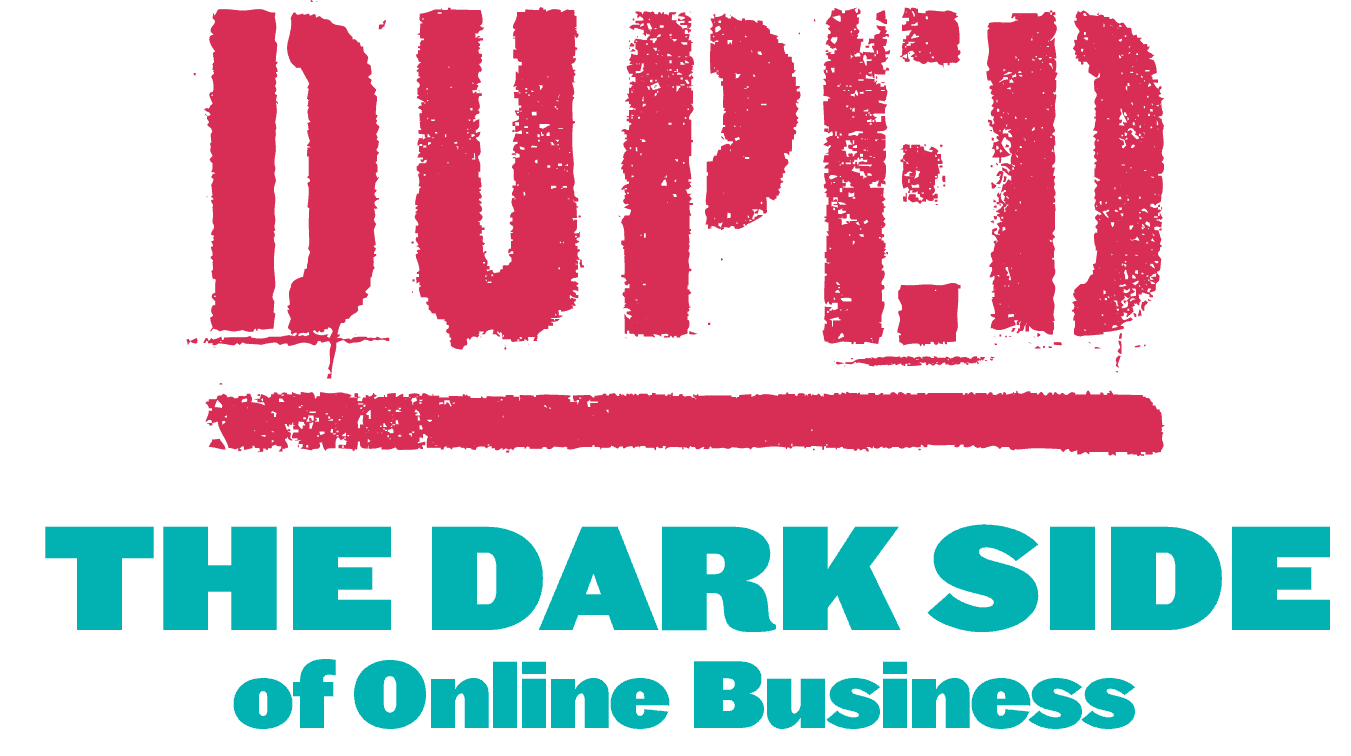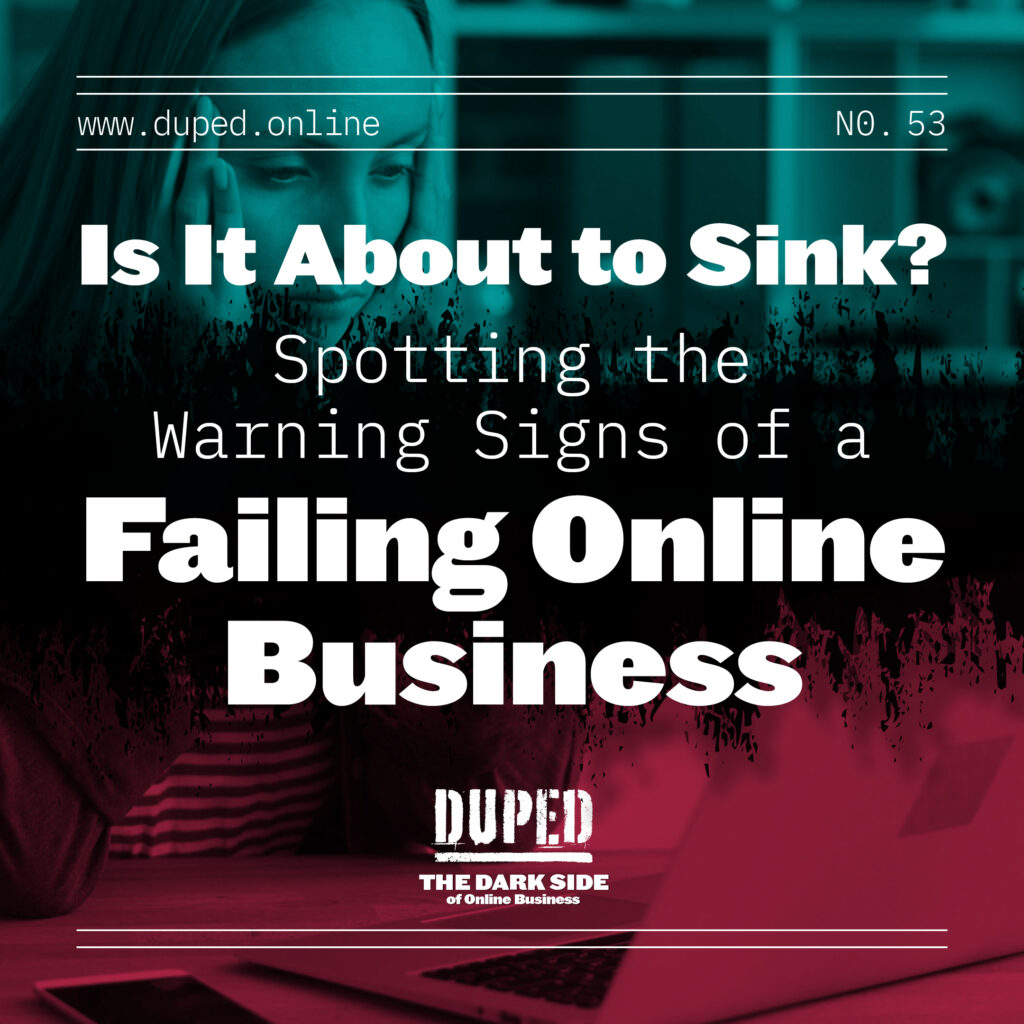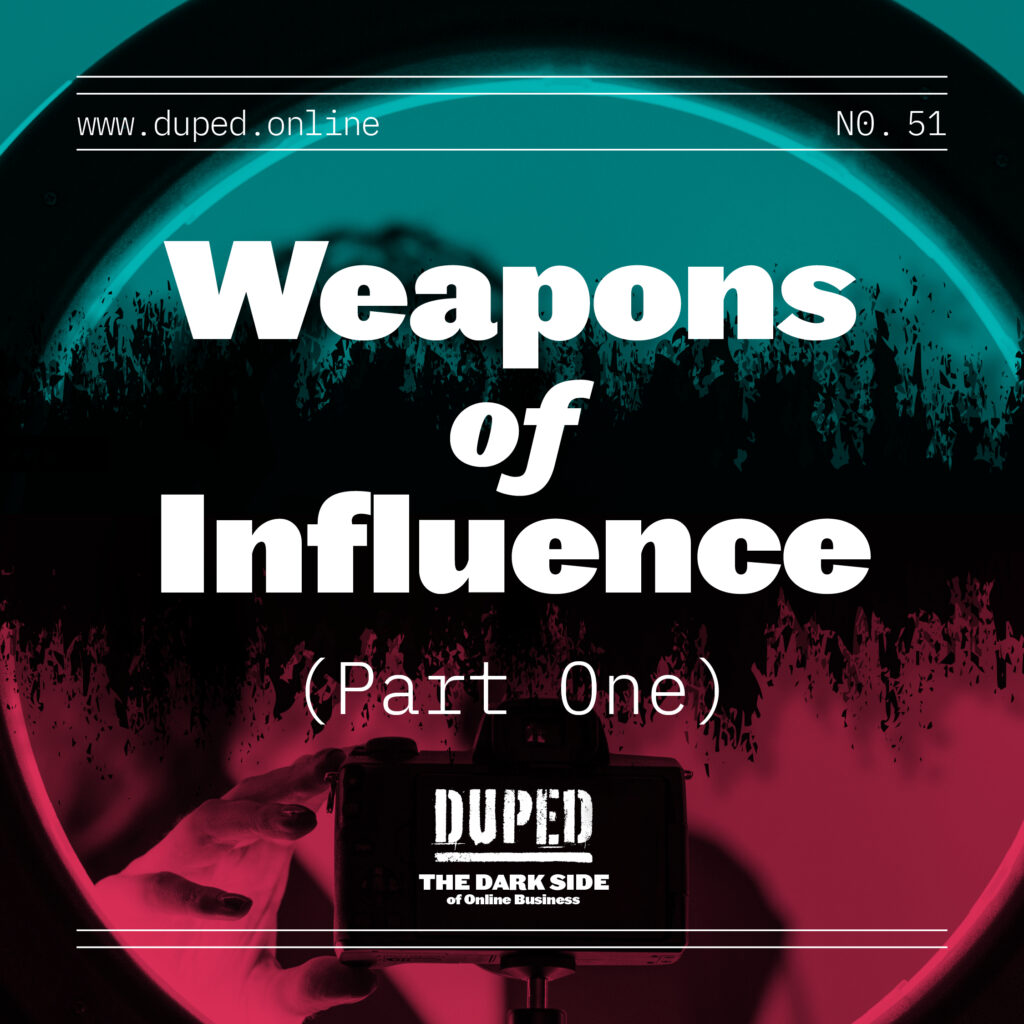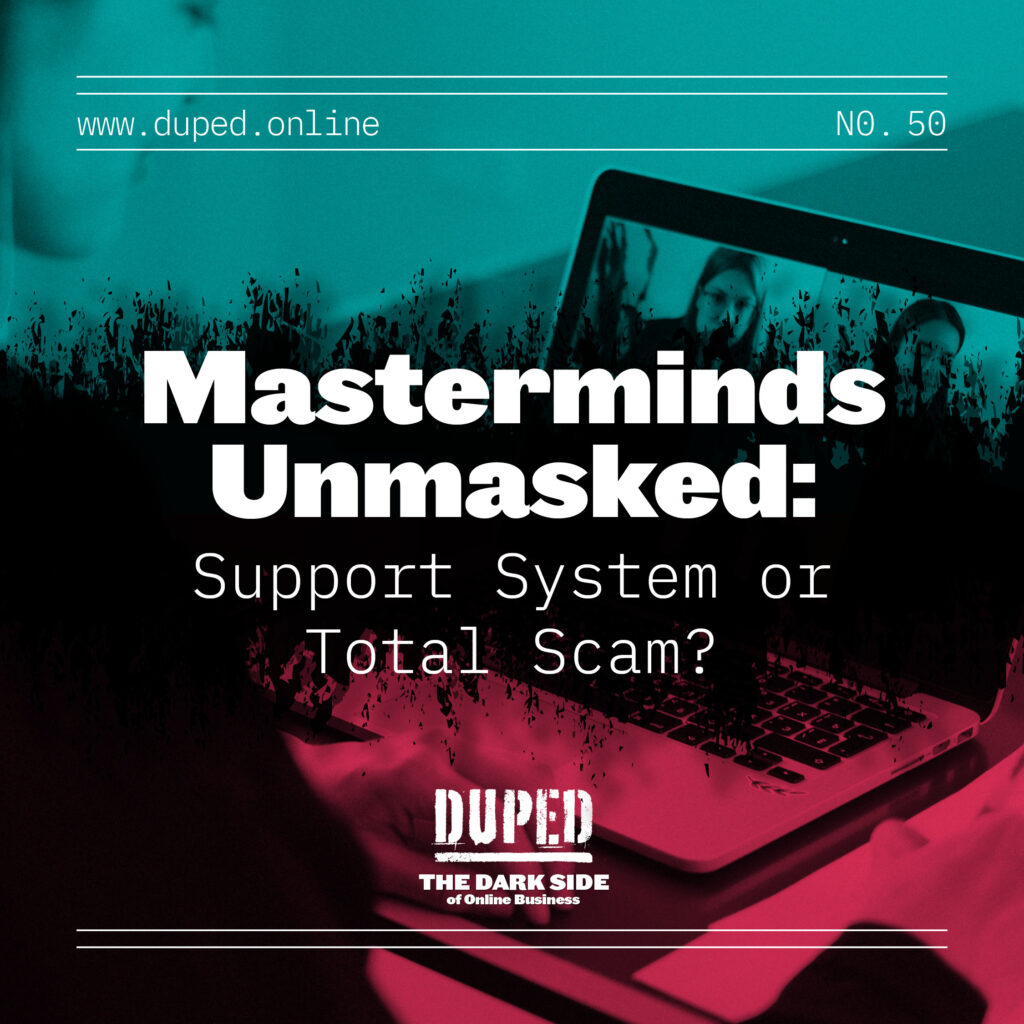
You’ve Been Scammed: Now What?
The jig is up, and now you realize that the coach or course you signed up for is not what it seems, and you want out. You want your money back. You want them out of your life.
In this episode, we’ll look at your options if you’ve been scammed and answer the question, now what?

One of the big reasons we do this show is that we want to help people become savvy consumers so they don’t get screwed over or, worse yet, harmed by these unsavory, scammy coaches and celebrity entrepreneurs.
While that’s our mission, the reality is that hundreds (or should that be 1000s?) of people get screwed over daily. We hear these stories constantly, so today’s episode is an important one, as we can’t just talk about how to avoid being duped. We need to talk about what to do if you find yourself duped.
Before we get into all of it, it’s important to note that we’re not legal or mental health professionals. Nothing we say here should be treated as such, and we fully encourage you to seek professional support where you need it.
Every single episode of this season, and this entire show, looks at how these scams and grifts are constructed and how you can protect yourself. But we also know these people out here selling their programs, course, and coaching are constantly evolving, and they’re good at sales and marketing.
So at some point, you may be in a situation where you’ve been less than satisfied with the product you bought or the results.
Keep Your Receipts
At a very practical level, there are two things we can recommend here if you’ve been scammed. First, when you buy anything, keep all the receipts. And we don’t just mean your actual receipt of what you paid for. Take screenshots of the sales page as they tend to disappear, keep copies of correspondence, and so on. It may seem overkill, but it’s collateral if needed later.
If you didn’t do that right out of the gate and realize things are not what they seem, start keeping them at that point. Make notes with days and times. The more detail, the better, as if this turns into a legal issue, you’ll want the proof.
File a Chargeback
If you paid by credit card or PayPal, you might be able to work with them to get your money back or at least stop future payments. A chargeback is when you work with a credit card company or PayPal.
Typically you would request this for something like your card was compromised, but they’re also appropriate for when the merchant is uncooperative or the product/service is poor quality. In the US, the Fair Credit Billing Act covers cases of poor quality, and you can use this option as long as you’ve already worked with the seller.
Remember that there are time limits on chargebacks; for example, Visa has a 120 limit on buyers requesting a chargeback.
In my experience, chargeback complaints tend to be in favor of the consumer, so definitely ensure you have a clear paper trail. Also, this extra layer of insurance when purchasing, so as much as possible, stick with credit cards or PayPal payments. If someone is requesting a wire or bank transfer, that should give you pause.
Filing a Report or Formal Complaint
While there aren’t specific laws related to online business, there are several ways you can file a report or formal complaint, depending on where you live if you’ve been scammed.
In the United States, you can file a complaint with the Federal Trade Commission (FTC) and the appropriate state’s Attorney General. The FTC added a page to its website on business and coaching scams in August 2022 so there’s growing awareness of how consumers are being scammed.
The FTC has a specific page for reporting scams, and the National Association of Attorney Generals has a resource to help you find the AG.
The case in Washington state against MLM LulaRoe was filed by their AG and resulted in a $4.75 million payout. So while it may be easy to think your complaint may go nowhere, you never know!
In February 2022, the State of Texas sued influencer Brittany Dawn Davis for misleading her clients. When you dig into that case, part of the allegations was that Davis “largely ignored consumer complaints” and “engaged in false, misleading, and/or deceptive acts or practices” in violation of the Deceptive Trade Practices Act (DTPA).
Doesn’t this sound familiar? It shows how these complaints can go a long way and that there is a willingness to protect consumers.
Also, in the US, the Better Business Bureau is another avenue for complaints, and honestly, I would file those complaints in every single place relevant to that business. If you’re unsure where to complain, look at the terms and conditions (or your contract) for where their business is based and start with that.
Take Legal Action
There may be cases where a civil suit is warranted, mainly if there’s a breach of the contract. We’re not lawyers, but in some situations, it’s worth considering depending on the impact of this business relationship gone wrong.
Consult with a lawyer who understands the online business space to see if it’s worth pursuing and what type of financial commitment may be required. Legal options can be lengthy, costly, and very stressful, so you must consider what’s right for you.
Can you Call Them Out?
As online business owners, we operate online, so it’s natural to want to use social media or our platforms to want to call someone out. If you’ve been scammed, we’re not going to tell you which way to go, but if you’re tempted to take it public, you should take the time to carefully consider the pros and cons.
With the power dynamics at play, typically, you’re the one with more to lose by calling someone out, and there is the potential for further harm to be done, especially as the modus operandi of so many of these individuals doing business in this way is to turn themselves into the victim. They will DARVO their way through the situation and send flying monkeys to attack you.
We don’t want to silence you in any way, but instead to ensure that if you call someone out, you’re considering your safety and well-being. The attack pattern has intensified in the last couple of years, and the fallout can be worst than the initial situation.
Get Support and Forgive Yourself
We regularly hear from those of you who’ve been sucked in or scammed, and it’s common to feel shame around these bad investments.
This is why this last part is the most crucial. You need to find a way to find forgiveness with yourself. Yes, lessons can be learned from these situations, but letting them continue to shake your self-trust makes it even worse.
The damage done by these bullshit artists has very real consequences on our emotional, spiritual, physical, and financial well-being. The degree to which this impacts you may vary based on your background and the situation you found yourself in, which is why we encourage you to get support, ideally, from a mental health professional.
It’s easy to downplay how much these business relationships can mess with us, but the harm being done is lasting. If you need help to move on, forgive yourself, unpack what happened, or anything else, a licensed, qualified mental health practitioner can help.
Links for This Episode
- What is a Chargeback – and How to Dispute Credit Card Transactions
- Consumers Have Powerful Tool in Credit Card Chargebacks
- Fair Credit Billing Act
- FTC – When a Business Offer or Coaching Program is a Scam
- FTC Fraud Reporting
- Resource to help you find the AG
- Washington State V MLM Lularoe
- State of Texas Sued Influencer Brittany Dawn Davis
- Deceptive Trade Practices Act
- What is DARVO?
- What are Flying Monkeys?
Join the

Patreon

for only $7/month and get a
monthly bonus episode,
behind-the-scenes content
and more.










